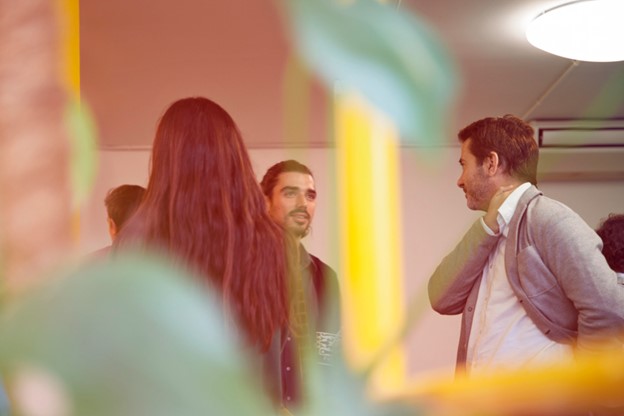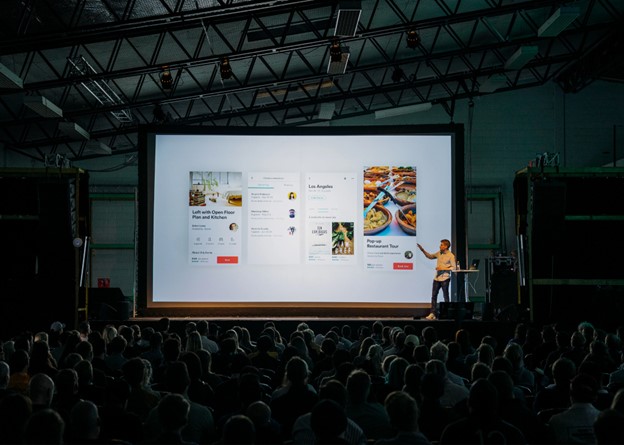Two focuses of my blog are Financial Literacy/Money and Business/Entrepreneurship. Business events are critical functions. A part of having a successful business event knowing and seeing to the needs of your audience. The following contributed post is entitled, 10 Must-Haves for a Successful Business Event: Catering to the Needs of Your Audience.
* * *
In the fast-paced world of business, successful events are crucial for fostering connections, disseminating knowledge, and staying ahead of industry trends. To ensure your business event is not just memorable but also impactful, it’s essential to cater to the needs of your audience. Here are 10 must-haves that will contribute to the success of your business event:

Your audience needs energy
Business events can be mentally and physically draining. Ultimately, your audience is likely to be either on their feet all day, walking from a business booth to another, or they will be sitting and absorbing one informative conference after the other. Truth be told, this is not only exhausting, but it also consumes a lot of energy to make the most out of a business event. There’s no denying that the longer your audience stays at the event, the more exhausted they are going to be, and therefore, the less they are going to benefit from the event itself.
So, it falls under the responsibility of the event organizers to recognize the importance of replenishing attendants’ energy. They will need all the energy they can get to maintain focus! So it is worth working with a professional catering company to prepare an event buffet. These experts understand the nutritional needs of attendees and participants, providing nourishing meals and snacks that keep energy levels high throughout the event. A well-fed audience is an engaged audience, ready to absorb the valuable information being presented.
Your audience needs rest
This may sound unexpected, but your business event should also include a break area. Indeed, nobody can stay concentrated and engaged for a long period of time. Most people need to take breaks every few hours at work to recharge their mental battery. The same goes for visitors at a business event. Planning for downtime and breaks is crucial in ensuring the well-being of your audience.
Otherwise, the risk of sacrificing breaks can affect the quality of the event. If there is too much to absorb in terms of information, your audience may not be able to get the best value out of the event.
Business events are often packed with information, and taking breaks is essential for attendees to absorb and process the knowledge being shared. So, you may want to consider creating designated break areas and break times in your agenda that will not only encourage relaxation but also support networking opportunities among participants during these intervals.
Your audience needs clarity
There is nothing worse than attending a conference and wondering at the end what the speaker was actually saying. This may happen more often than you realize at business events. After all, when you attend multiple conferences on the same day, you may naturally forget some of the information that you hear. This is even more likely to happen if speakers are not experienced enough to clearly convey their messages. From an event organizer’s perspective, you want to invite professional and experienced speakers who know how to make an impact.
Articulate speakers with a rich vocabulary play a pivotal role in conveying messages effectively at business events. Should you rather hire a professional speaker or ask a member of your team to take the stage? In reality, experienced speakers who can articulate complex ideas with clarity come from a variety of backgrounds. People such as Steve Jobs have clearly demonstrated that being able to keep the audience engaged throughout a speech does mean you have to be a professionally trained speaker. It is a mixture of charisma, being articulate, and being a good storyteller. The combination of these skills ensures that the audience comprehends and retains the information presented.
Naturally, preparation for all presentations and public speeches is essential to maintain a high standard of communication throughout the event.

Your audience needs guidance
Why should visitors come to your event? Do you know what the most common mistake is when it comes to event preparation: Failing to share the right information with your potential target audience. Indeed, many event organizers want to keep some of their speakers, conferences, or product introduction a surprise. However, this could affect the attendance numbers as people do not know why they should attend.
Therefore, you want to be sharing the event agenda early and openly on your platforms. This is a fundamental step in providing guidance to attendees, and ensuring that the right people can come to your event. Ultimately, people need to know what to expect from the event so they can plan their time effectively, ensuring they don’t miss out on important sessions.
Key to the success of your event is an early and comprehensive marketing campaign leading up to the event. It will serve many purposes. Firstly, it is crucial for creating awareness and reaching out to your intended audience. Secondly, it will be generating anticipation among the target audience.
Your audience needs knowledge
Have you ever attended a business event and felt that you’ve forgotten everything on the next day? This is very common and unfortunately, it is also a natural result. You need to arrange for bite-sized knowledge materials, which are invaluable takeaways for event attendees.
What difference does it take? Essentially, when you provide resource materials, such as brochures, or a link to YouTube videos from the event, and other supplementary content, you give your audience a chance to seek further knowledge about the event topic. This ensures that participants have access to relevant information even after the event concludes. It not only enhances the long-term impact of your business event, but it also helps people better understand your message.
Your audience needs contacts
Why do people attend business events? The number one reason for attending any event is networking. So, this is precisely why it is crucial to build networking opportunities into your event. This will act as a connection facilitator among attendees. In the old days, people would exchange business cards at events and spend several weeks after the event contacting and researching the different individuals they met. But with little networking time, most connections failed.
As such, event organizers need to create specific zones, both in the event agenda and in the venue, for networking. This could be a case of creating networking slots for specific trades, needs, or even business interests so people who should be talking together are able to meet. Introducing natural networking activities further enhances the collaborative atmosphere and ensures that your visitors can build relationships that extend beyond the event.
Your audience needs to stay connected
In today’s digital age, a secure and reliable Wi-Fi connection is a non-negotiable aspect of any successful business event. Most attendees and participants are still trying to keep up with they day-to-day responsibilities, even while they are at an event. This could mean answering important emails, entering new contact details into their database, making professional appointments, and a lot more.
Besides, a lot of businesses that participate in an event require a strong Internet connection as part of their presence and demo. Therefore, ensuring that all visitors and participants have access to a stable internet connection facilitates communication, enhances engagement, and allows for real-time interaction through various event or work-related apps.
Your audience needs a social media area
What is the number one action that every event visitor does? They share a photo of the event on social media. This could be LinkedIn, Instagram, Facebook, or even Mastodon. Social sharing is part of everyday business life, and is one of the easiest ways to promote your event.
As such, you can’t ignore the importance of social media in contemporary business interactions. So, it makes sense to build a social media-friendly event, that not only amplifies its reach but also allows attendees to share their experiences, generating buzz and interest around your business. This could mean creating an “Instagramable”, “LinkedIn-able” zone with a promotional background for selfies, along with hashtags.
Your audience needs unique content
Remember that visitors need a reason to attend. Differentiating your business event by bringing a unique angle to common subjects or introducing new products is crucial for capturing the interest of your audience. Ultimately, there’s no miracle. You need to be providing fresh perspectives and innovative content to ensure that attendees find value in your event, making it a standout experience.
Your audience needs easy access
Most visitors try to ram event attendance into an already busy day. So, it makes sense to select easily commutable venues with extended opening hours, so your visitors can still attend while working too. Ideally, central city venues are the best choice for business events. Accessibility is a key factor in attracting participants, and a convenient location contributes to a positive overall experience for attendees.
In conclusion, catering to the diverse needs of your audience is the cornerstone of a successful business event. From nourishing their bodies with quality catering to stimulating their minds with articulate speakers and unique content, addressing these 10 must-haves ensures a memorable and impactful experience for all participants.
Naturally, there’s a lot more to event planning than meets the eye. Yet, the priority for success is to fully understand and tackle the needs of a modern audience.
